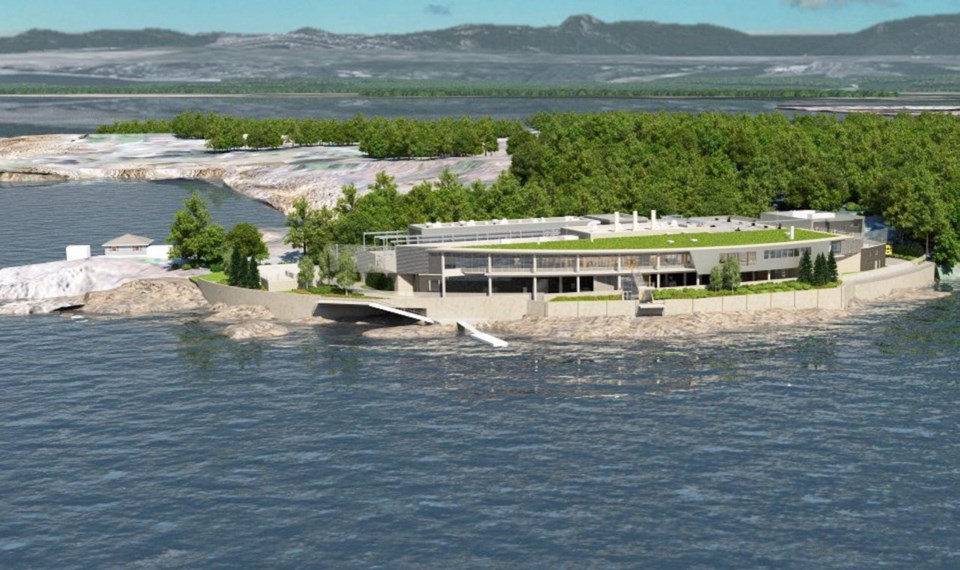With the provincial government refusing to intervene, McLoughlin Point can no longer be considered as a possible site for a sewage treatment plant, says the Capital Regional District, which will now examine other options.
“I think this is going to cost a lot and that is my main concern,” said Victoria Coun. Geoff Young, who chairs the CRD’s core area liquid waste management committee.
“We will get sewage treatment, that much is clear. It’s going to be delayed but we’re going to have to have it.”
Langford Coun. Denise Blackwell, past committee chairwoman, agreed with Young. “This action is going to mean the dollars will keep adding up. People talk about having a number of different plants. ... I certainly hope this doesn’t mean we’ll lose our grants because that’s also a concern,” Blackwell said.
The federal government has agreed to contribute $253.4 million and the province $248 million but with a 2018 deadline for completion.
The CRD asked the province last month to intervene after Esquimalt refused to rezone McLoughlin Point for a sewage treatment plant. Esquimalt council further resolved to change the zoning to specifically disallow a treatment plant there.
B.C. Environment Minister Mary Polak said Tuesday that the province will leave it to local governments to resolve the dispute.
“It is a very serious thing for a provincial government to try to undo what local governments, through their zoning, are legally allowed to do,” she said.
“At the end of the day, it is quite proper for the local governments, who are elected by their taxpaying public ... to resolve these issues themselves.”
CRD board chairman Alastair Bryson called Polak’s decision “regrettable.”
Esquimalt Mayor Barb Desjardins praised Polak for respecting the autonomy of local governments. “I think it’s unfortunate that there was this perception that the ministry would come in and trump everything and make it happen,” she said. “I’m so pleased that the minister didn’t. This really can restore public faith in public process.”
Desjardins said the CRD board has to hit the pause button on Seaterra, the commission appointed by the province to oversee the megaproject, “because they don’t have a project anymore.” The CRD then has to look at taking a different approach, instead of focusing on one municipality.
To date, about $48 million has been spent on the sewage treatment project — $19 million in planning between 2006 and 2013 and $29 million in implementation from 2012 to the end of April 2014. Another $20 million has been committed, CRD officials say. The entire project was budgeted at $783 million.
CRD officials hoped to hold a special meeting June 4 to discuss options but were unable to schedule it. Many board members are out of the city attending the Federation of Canadian Municipalities convention in Niagara Falls. The issue now will be discussed at the regular June 11 meeting.
Seaterra has said every month of additional delay is adding $1 million to the cost of the project.



